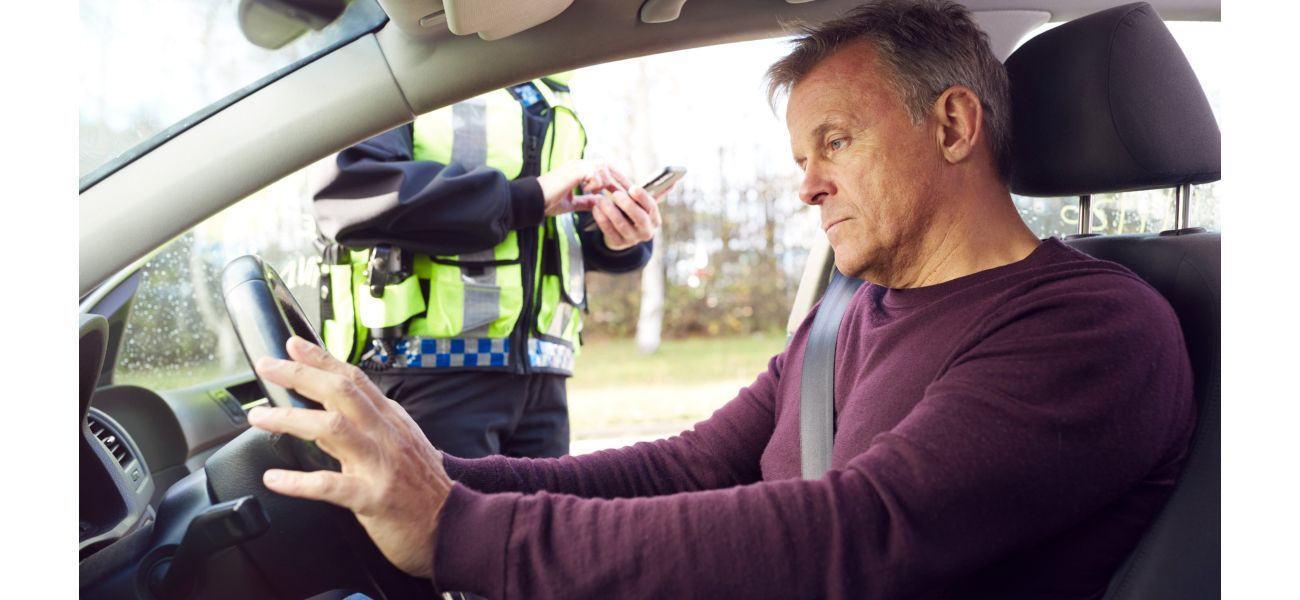Possible paraphrase: Motorists who have been drinking may be required to take a breath test before driving.
People who continue to break the law may have a device called an 'alcolock' installed in their car.
September 29th 2024.

The issue of drink-driving is a serious one that has caught the attention of authorities and motorists alike. Recent research has revealed that a significant number of drivers have been caught reoffending for drink-driving multiple times. In fact, out of the 27,837 British drivers convicted of drink-driving, 372 of them were repeat offenders who had been caught at least four times. This alarming statistic has prompted calls for stricter measures to be put in place to prevent such incidents from happening.
One proposed solution is the use of alcolocks, which are devices that require drivers to pass a breath test before starting their vehicle. These have been successfully implemented in several European countries such as France, Belgium, Italy, and Denmark, and many believe that it could be an effective alternative to driving bans. The idea is to prevent those who have been convicted of drink-driving from getting behind the wheel while under the influence of alcohol.
Road safety organizations have expressed concern over the high number of repeat offenders and have urged the government to take action. RAC road safety spokesman Rod Dennis stated that it is disturbing to see that some drivers are still willing to risk driving while intoxicated, even after being caught by the police. He also pointed out that the number of fatalities caused by drink-driving is now comparable to the rates in the late 1980s, indicating that something needs to change.
IAM RoadSmart's policy and communications manager, William Porter, suggested that expanding drink-drive rehabilitation courses and mandating alcolocks for repeat offenders could be effective measures to reduce reoffending. He also emphasized the importance of increasing the number of roadside breathalyser tests to serve as a deterrent for potential offenders.
The latest figures obtained through a freedom of information request from the Driver and Vehicle Licensing Agency have shed light on the number of DR10 endorsements on driving records, which are given to those convicted of driving or attempting to drive with alcohol above legal limits. These endorsements are valid for 11 years from the date of the offence and serve as a warning for drivers to be more responsible behind the wheel.
The figures also highlight the need for a new Road Safety Strategy, as stated by the Department for Transport. The government has made it clear that the safety of our roads is a top priority and that they will announce their plans to address this issue in the near future. In the meantime, it is crucial for drivers to understand the consequences of drink-driving and for stricter measures to be put in place to prevent it. Let us all work together towards creating safer roads for everyone.
One proposed solution is the use of alcolocks, which are devices that require drivers to pass a breath test before starting their vehicle. These have been successfully implemented in several European countries such as France, Belgium, Italy, and Denmark, and many believe that it could be an effective alternative to driving bans. The idea is to prevent those who have been convicted of drink-driving from getting behind the wheel while under the influence of alcohol.
Road safety organizations have expressed concern over the high number of repeat offenders and have urged the government to take action. RAC road safety spokesman Rod Dennis stated that it is disturbing to see that some drivers are still willing to risk driving while intoxicated, even after being caught by the police. He also pointed out that the number of fatalities caused by drink-driving is now comparable to the rates in the late 1980s, indicating that something needs to change.
IAM RoadSmart's policy and communications manager, William Porter, suggested that expanding drink-drive rehabilitation courses and mandating alcolocks for repeat offenders could be effective measures to reduce reoffending. He also emphasized the importance of increasing the number of roadside breathalyser tests to serve as a deterrent for potential offenders.
The latest figures obtained through a freedom of information request from the Driver and Vehicle Licensing Agency have shed light on the number of DR10 endorsements on driving records, which are given to those convicted of driving or attempting to drive with alcohol above legal limits. These endorsements are valid for 11 years from the date of the offence and serve as a warning for drivers to be more responsible behind the wheel.
The figures also highlight the need for a new Road Safety Strategy, as stated by the Department for Transport. The government has made it clear that the safety of our roads is a top priority and that they will announce their plans to address this issue in the near future. In the meantime, it is crucial for drivers to understand the consequences of drink-driving and for stricter measures to be put in place to prevent it. Let us all work together towards creating safer roads for everyone.
[This article has been trending online recently and has been generated with AI. Your feed is customized.]
[Generative AI is experimental.]
0
0
Submit Comment





